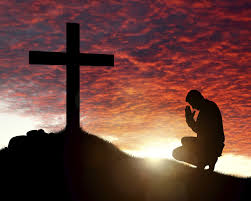Praying for the dead and the invocation of the saints
PRAYING
FOR THE DEAD AND THE INVOCATION OF THE SAINTS
Mario
D’Couto
We have just celebrated the feasts of All Saints and All
Souls day (which are on 1st and 2nd November) and with
that in mind, I thought of sharing a small reflection in line with this topic.
While prayer helps us to stay connected with God, when we pray for each other,
it also helps us stay connected with each other. This article is a
‘justification’ (if I may use the word) for the need to pray for all those who
are deceased and also for each other.
Sometimes some people would want to think that it is
sufficient enough to pray to God and that we don’t need anybody’s help or
intervention. However, this cannot be the case since no individual is an
island. We re all, in some way connected. Hence it is not surprising for people
to ask to pray for each other or for people to pray to the saints or for the
dead.
One may try to object by saying that this is not possible
for where do we find in scriptures, instances that prove this fact? If science
and technology can provide various means for people to communicate with others
across the globe such as the telephone, mobile, the internet and other means,
is it not possible for God, who is the Author of all sciences, to enable us to
communicate with our brethren across the shores of eternity?
Speaking about the facts from Sacred Scripture which
support the idea of intercessory prayer, the very first book of Genesis has an
account. Almighty God threatened the inhabitants of Sodom and Gomorrah with
utter destruction on account of their crimes and abominations. Abraham
interposes on their behalf and in response to his prayer, God consents to spare
those cities if only ten just men were found therein. Thus, over here we see
the fire of His wrath is withheld through the efficacy of the prayer of a
single man.
When the same Hebrew people were banished from the native
country and carried into exile in Babylon, so great was their confidence in the
prayers of their Brethren in Jerusalem that they sent them the following
message, “Pray ye for us to the Lord our God, for we have sinned against the
Lord our God.” (Baruch 1:13)
When the friends of Job had excited the indignation of
the Almighty in consequence of their vain speech, God, instead of directly
granting them the pardon which they sought, commanded to invoke the
intercession of Job: “Go,” He says, “ to My servant Job and offer yourselves a
holocaust and My servant Job will pray for you and his face will I accept” (Job
13). In this instance, we not only see the value of intercessory prayer, but we
find God sanctioning it by His own authority.
However, no other person could describe and explain the
phenomenon about the invocation of the saints than St. Paul himself. In fact,
if we read the epistles to the Romans and Ephesians, we find a lot of petitions
from St. Paul asking the people to pray for him. Another note – worthy figure
who explained the phenomenon so eloquently was the evangelist, St. John who
wrote, “The four living creatures and the twenty – four elders fell down before
the Lamb, each holding a harp and with golden bowls full of incense, which are
the prayers of the saints” (Revelation 5:8)
To ask the prayers of our brethren in heaven is not only
‘comfortable’ to Holy Scriptures but is prompted by the instincts of our
nature. The Catholic Doctrine of the Communion of Saints robs death of its
terror, while the Reformers of the 16th century, in denying the
Communion of Saints, not only inflicted a deadly wound on the Creed, but also severed
the tenderest chords of the human heart. They broke asunder the holy ties with
the soul released from the flesh. The question that perhaps we could raise is what
does death destroy? At the most, the body but not the soul. It, still continues
to think, will, remember and love.
The saints are like beacons of light in our lives and we
certainly do have an army praying for us. We also have to pray for all those
who are no more with us, that God will grant them eternal rest. All in all,
prayer, as mentioned earlier, is what keeps us together. No wonder Our Blessed
Lord said in the Gospels, “When two or three are gathered in my name, there I
am present” (Matthew 18:20). We are all united in God for we all breath in the
same Spirit which He bestowed on us at the time of our conception.



